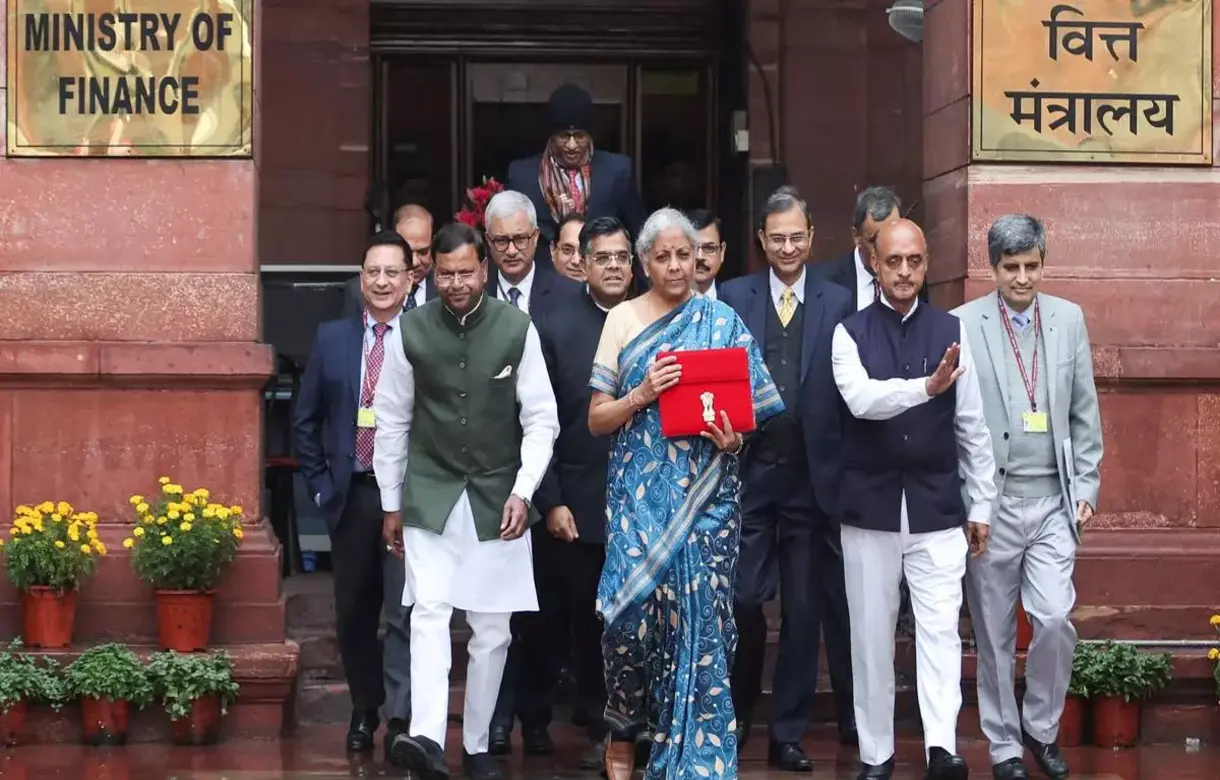While presenting the Economic Survey 2023-24, Finance Minister Nirmala Sitharaman highlighted that the Indian Economy is on a strong wicket and stable footing. The survey projected a real GDP growth of 6.5 per cent to 7 per cent in FY 25.
The Economic Survey stated that the Indian economy is on a strong wicket and stable footing, showing resilience in the face of geopolitical challenges. The economy also consolidated post-Covid recovery with policymakers, fiscal and monetary, ascertaining economic and financial stability.
The survey further underlined that for the recovery to be sustained, there has to be heavy lifting on the domestic front because the environment has become extraordinarily difficult to reach agreements on key global issues like trade, investment and climate.
It mentioned that headline inflation remains largely under control, despite increased rates for some specific food items. Notably, the trade deficit for FY24 was lower compared to FY23, with a current account deficit around 0.7 per cent of GDP and a surplus recorded in the last quarter. The foreign exchange reserves are ample, supporting economic stability.
In recent years, public investment has driven capital formation and the private sector has begun investing in FY22 after addressing balance sheet issues, and is currently poised to sustain this momentum.
The survey stated that job creation occurs mostly in the private sector. Additionally, many of the factors influencing economic growth, job creation, and productivity are within the purview of state governments. Hence, India needs a tripartite compact, among the central government, state governments, and the private sector, more than ever before to meet the rising aspirations of its citizens and achieve the goal of a developed India by 2047, the survey noted.
The survey also highlighted that the agriculture sector is crucial for India and ripe for a comprehensive pan-India dialogue. It stated that India heavily subsidises water, electricity, and fertilizers for farmers, often providing the former two virtually free.
In addition, farmers’ incomes are untaxed, and the government offers a minimum support price (MSP) for 23 selected commodities, along with monthly cash support through the PM-KISAN scheme. Despite significant spending by national and sub-national governments, a re-orientation of existing and new policies could better serve farmers.
At present, a mix of conflicting policies is harming farmers’ interests, destroying soil fertility, depleting groundwater, polluting rivers, and contributing to environmental issues. These aforesaid policies also undermine public health by promoting diets rich in sugar and carbohydrates instead of fiber and protein. Untangling these policy knots could yield immense benefits, restoring faith in the state’s ability to guide the nation towards a better future and delivering substantial socio-economic advantages.
Another factor where policy intentions have yet to achieve desired outcomes is with respect to small, medium, and large enterprises. Earlier, multiple products were reserved for small-scale industries, but this approach was phased out as it benefitted neither the small industries nor the overall economy. Recent concerted efforts at formalizing these enterprises are making progress, but access to finance remains a significant challenge.
Notably, buyers and creditors are shedding old mindsets and practices too slowly for these enterprises to feel the impact. Additionally, these businesses need maximum relief from the compliance burdens they face. Existing laws, rules, and regulations stretch their finances, abilities, and bandwidth, potentially robbing them of the will to grow.
Further, the Economic Survey highlighted that the tripartite compact that India needs to become a developed nation amidst emerging unprecedented global challenges involves three key elements namely, governments must trust and let go, the private sector must reciprocate this trust with long-term thinking and fair conduct, and the public must take responsibility for their finances and their physical and mental health.























